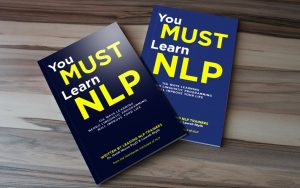Recently I was at a restaurant on my own, and before I picked up my book to be be absorbed in another world, I began to eavesdrop on the people next to me. One was complaining about how hard it was to lose weight (while adding copious amounts of sugar to her coffee, eating sweet breads and fried food) another person was complaining about a work colleague and how little he felt understood and the third person was talking about a shoulder pain she had been having for a few years (she even remarked at how easy it is to make pain feel normal).
Now, I have no real judgement about any of these people, but I do have an observation – none are fully taking responsibility for what is going on in their lives.
I’d like to point out or remind you about 3 presuppositions or assumptions that the filter of NLP has. 1) you are in charge of your mind and therefore your results, 2) your mind and body are connected and therefore affect each other, and 3) the person with the most flexibility will control their situation.
When you learn NLP and embody the elements that fit for you, one thing you will notice is an elevated sense of responsibility in your life. In your life. You will also begin to be even more aware of the role others have for their own life. It still amazes me, all these years after first learning NLP how little responsibility some people take for their lives.
If I had permission to discuss NLP and personal responsibility and choice to the table next to me at the restaurant I would share with them some of the ways they can help themselves and take back ownership of their destiny.
I would say to the woman who wants to lose weight – that sugar didn’t just jump in your coffee and those pastries didn’t magically appear on your plate. You have choice here. You are the only one responsible for what you are doing right here in this moment. If you don’t have a clear desired state or plan of action, NLP can help you create this. If there are cravings that you can’t control about what you’re eating – NLP can help you change or manage those too. But, at the end of the day, it is up to you.
To the gentleman who didn’t feel understood, I would ask him how he would know if others did understand him. I’d enuire about who he feels misunderstood by and explain that if there is a pattern in his life of feeling this way, NLP canhelp him to change that pattern and possibly even understand himself better. I’d explain that NLP could help him to express himself more effectlvey, enhance his confidence and personal power if needed and give himself permission to be understood. I’dalso share with him that if he first sought to understand others then perhaps he could more clearly help people to also understand him. I would help him understand that it is his responsibility for people to understand him, not the other way around.
To the lady with shoulder pain – I’d first let her know that it isn’t normal and that if she chooses to she doesn’t’ have to live with it. I’d explain the mind/body connection and let her know that her pain probably has less to do with her posture and more to do with an emotion or belief she is holding onto. I’d also tell her that she is in charge of her mind and her body- she could use her mind to understand and get rid of her pain; and she could be empowered to know what her body is communicating to her so that in the future, should she feel this pain again – she would know what to do.
When teaching and sharing NLP with our students, it is important for us to empower them to take responsibility for what is going on in life. Take responsibility for everything that is going right – so you ca do that over and over again. Take responsibility for what isn’t going well – so you can change it.








